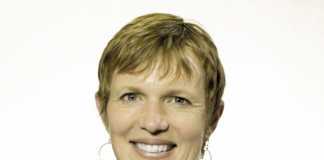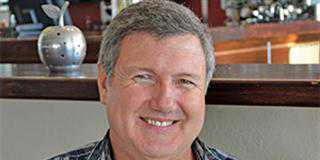What motivated you to invest in agribusiness?
Before Zeder was established in the early 1990s, we noticed most agribusinesses in South Africa were undervalued.
Most were cooperatives, some between 50 and 100 years old and there was no motivation for them to make a profit. Their sole purpose was to sell goods at low prices to members who were also the owners. Those agribusinesses owned good properties and had silos and stock on their shelves. I prefer a business that can show me something tangible.
How does an unprofitable co-op become profitable?
The past five to 15 years have seen most co-ops change into companies. A company doesn’t have members, but shareholders who want profits. Most of those new companies already had good management in place and it was a relatively simple step to change the focus to profitability.
Why was Zeder Investment formed?
When we started investing in agribusinesses they weren’t in the public eye, so bargains were made. We invested R350 million in the KWV, Kaap Agri and a few others and realised we needed a dedicated company to facilitate the business. With the formation of Zeder, we raised a further R700 million from investors, enabling us to grow faster.
How does your portfolio look?
Our two major investments are KWV and Kaap Agri. KWV was established in 1918 and since becoming a company 10 years ago, it is showing profit for the first time. Kaap Agri has 50 shops and gave us access to Pioneer, which owns both Sasko and Bokomo. KWV and Kaap Agri represent 75% of our portfolio. There are various other traditional cooperatives in the country in our portfolio that have made the transition to profitable companies.
Agricol is the largest pasture and grass seed company in South Africa. I’ll never forget a visit there when, walking through a depot, I was told their biggest problem was birds eating seed. I thought that was a nice problem to have. Capespan is a fruit exporting company. Oos Vrystaat Kaap Operations in Ladybrand serves as a hub for that community and then there is Suidwes in Leeudoringstad and NWK in Lichtenburg. NWK owns a biofuel plant and even though it’s not yet profitable and the research and development hasn’t been done, the plant is there.
MGK in Brits manages a very successful BEE programme. In 2004 it sponsored 22 BEE farmers on 2 000ha, worth R2 million. In 2008 this expanded to 207 BEE farmers, planting 17 000ha, worth R57 million. Show me a government-driven project to match. KLK is based in Upington and BKB in Port Elizabeth. Tuinroute Agri in Mossel Bay serves the southern Cape with agricultural products and building material.
Would you consider investing in farming operations?
No, we don’t know how to farm at Zeder so it would be impractical for us to get involved. I don’t foresee us getting involved in the operational side of agriculture.
What is your take on BEE in agriculture?
One must accept and realise that what happened during apartheid was wrong. Most South Africans couldn’t own land so how were they supposed to build a future? Land reform and BEE are necessary, but at the same time, there should be a sunset clause for BEE and young white talent shouldn’t be scared out of the country. The brain drain is a tragedy. I fully endorse projects such as the MGK where people are empowered with skills and knowledge.
How do you see the future of agriculture in South Africa?
I don’t lose sleep over it. I think there are many unexplored opportunities and business competition isn’t as hard as in the EU for example. We would also consider investing elsewhere in Africa, but for now there is enough to occupy us here.
And on a personal level?
I grew up on a sheep farm in Carnarvon, and I still own a farm there. I have a weekend getaway game farm outside Barrydale and am involved in a small wine farm. My wine farm will probably never show a profit with the current state of the
wine industry, which makes sheep farming my most successful farming operation.
Contact Zeder on (021) 887 9602.













